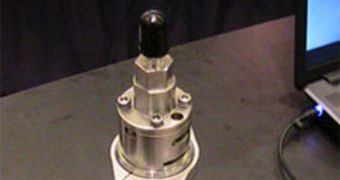As the old adagio goes, if you can't beat them, join them. This is precisely what a new start-up has done in the United States, when it took the standard fuel injection system used in gasoline engines, and began working on it. The result was a system that can easily improve fuel efficiency by as much as 50 percent, say researchers at the Camarillo, Texas-based Transonic Combustion. They add that one of the vehicles they tested using the new fuel injectors got as much as 64 miles per gallon, which is a vastly-improved performance over existing hybrid designs, such as the Prius. The car gets 48 miles per gallon on the highway, Technology Review reports.
According to the Transonic vice president of business development, Mike Rocke, the secret to achieving such a high level of efficiency is heating and pressurizing the fuel itself before inserting it into the combustion chamber. This allows for it to achieve a supercritical state that makes it more likely to burn. The combustion process becomes faster and more efficient, which means that less fuel needs to be inserted into the combustion chamber in order to propel the vehicle. As such, consumption is decreased considerably, the experts behind the new technology say.
They add that the gasoline is also “activated” beforehand, which means that it is partially oxidized to enhance the chemical reactions that break it down. All efforts that have been recently made to improve fuel efficiency were promoted by the need to comply with the new fuel economy standards and other regulations that states are putting in place to mitigate the effects of climate change and global warming. But the ultimate goal in these efforts is to produce cars that have competitive prices, and are not too expensive. High costs are the main reason why electric cars are not yet the norm.
“It's a time of renaissance for internal combustion engines,” explains Massachusetts Institute of Technology (MIT) professor of chemical engineering William Green. He says that the startup's injection system “may be a promising way to improve on conventional direct injection.” Other directions of research in this field, the professor adds, could be improving valve times, creating better direct injection mechanisms, and boosting smaller engines with turbochargers. The new system could be introduced in automobiles by 2014, with Transonic Combustion planning to build its first factory within three years.

 14 DAY TRIAL //
14 DAY TRIAL //